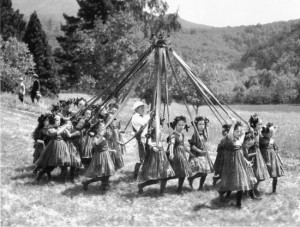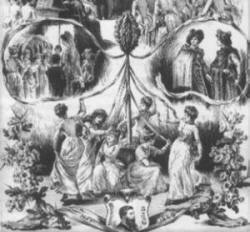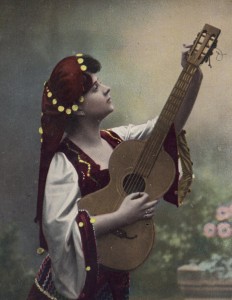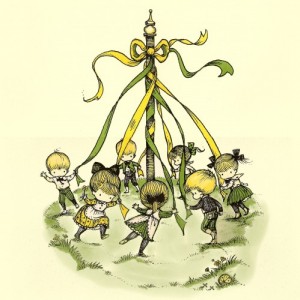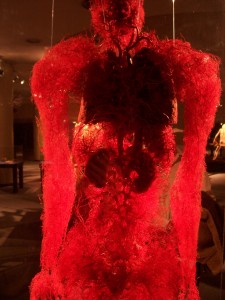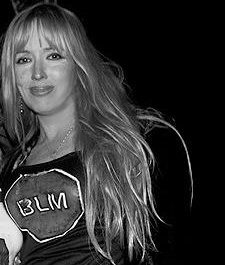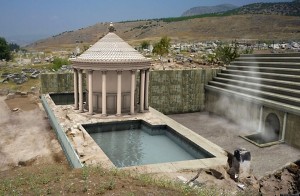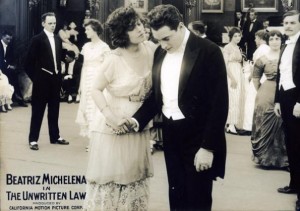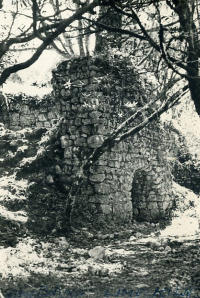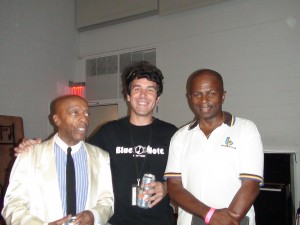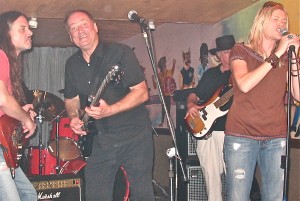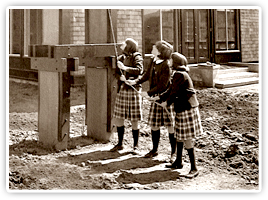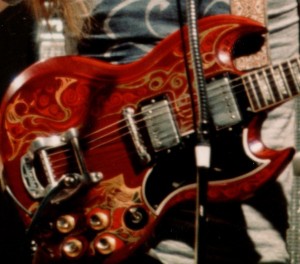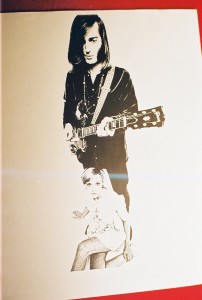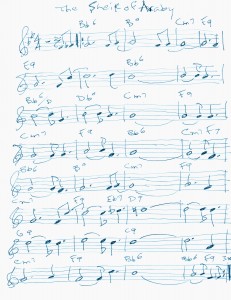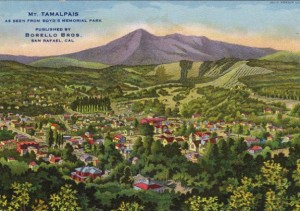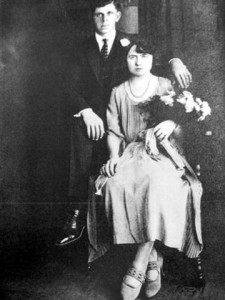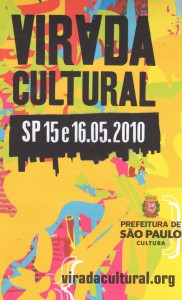A Chthonic Tonic
Chthonic, from Greek χθόνιος – chthonios, “in, under, or beneath the earth”, from χθών – chthōn ”earth,” pertaining to the Earth.
Earthy. Subterranean.
Apart from its literal translation meaning ‘subterranean,’ the historical definition of χθών designates, or pertains to, deities or spirits of the underworld.
The Greek word χθών khthon is one of several for “earth.”
χθών typically refers to the interior of the soil, rather than the living surface of the land (as Gaia or Ge does) or the land as territory (as khora (χώρα) does). χθών evokes at once abundance and the grave.
There are connotations in the word χθών of mystery and secrecy.
The Oxford English Dictionary tells us that the first two letters in the word χθών should be pronounced (as /k/), but the American Heritage Dictionary considers these letters as silent, /ˈθɒnɪk/. I would defer to the OED here, although I pronounce the ‘ch’ as a heavy breath sound. HTHonic. The way Scottish people pronounce loch, or how Germans say Ach!
The modern pronunciation of the Greek word “χθόνιος” is [ˈxθonios], although the Classical Greek pronunciation would have been [kʰtʰónios].
The words khthonie and khthonios, related to χθών, have a precise and technical meaning and they refer primarily to the manner, the way of offering sacrifices to the chthonic deity.
Some chthonic cults practiced ritual sacrifice at night time.
When a living creature was to be sacrificed, the animal was placed in a bothros (“pit”) or megaron (“sunken chamber”).
In other chthonic cults, the animal was sacrificed on a raised bomos (altar).
Offerings usually were burned whole or buried rather than being cooked and shared among the worshippers.
The chthonic deities were gods of fertility.
Demeter and Persephone both watched over aspects of the fertility of land, yet Demeter had a typically Olympian cult while Persephone had a chthonic one.
The ideas of Olympian and chthonic were not completely separate.
Some Olympian deities, such as Hermes and Zeus, also received chthonic sacrifices.
Heracles and Asclepius, for example, might be worshipped as gods or chthonic heroes, depending on the site and the time of origin of the myth.
And Hecate was usually offered young dogs at crossroads, a practice neither typical of an Olympian sacrifice nor of a chthonic sacrifice to Persephone or the heroes.
The idea of the ‘crossroads’ has played a part in mythology for a long, long time.
A crossroads can be ”between the worlds,” a site where supernatural beings can be contacted and paranormal events can happen.
The crossroads can mean a locality where two realms touch and represent a threshold, a liminality, a place “neither here nor there”, “betwixt and between”.
In the Vodou tradition, Papa Legba is the Iwa of the crossroads.
In rootwork and hoodoo, forms of African American magic spirituality, one may wait at a crossroads to acquire an artistic skill, or a “luck” in gambling. This can happen at a certain number of times, either at midnight or just before dawn, and one will meet a “black man,” who could be the Devil, who will give one the desired skills.
In the United Kingdom, there was a tradition of burying criminals and suicides at the crossroads which often marked the boundaries of the settlement.
There was a desire to bury those outside of the law outside of the settlement. People thought that many roads would confuse the dead spirits.
Mandalas and medicine wheels, such as the Christian cross, for example, are metonyms of the crossroads.
So, a long time ago, Hecate of the crossroads was generally thought of as χθών chthonic, because of her underworld activities.
The term chthonic was often used in analytical psychology to describe the unconscious earthly impulses of the Self.
Carl Jung talks about the meaning of χθών in Man and his Symbols.
“Envy, lust, sensuality, deceit, and all known vices are the negative, ‘dark’ aspect of the unconscious, which can manifest itself in two ways. In the positive sense, it appears as a ‘spirit of nature’, creatively animating Man, things, and the world. It is the ‘chthonic spirit’ that has been mentioned so often in this chapter. In the negative sense, the unconscious (that same spirit) manifests itself as a spirit of evil, as a drive to destroy.”
Chthonic (χθών) also retains some of its very physical, concrete connotations today.
In geology, for example, the word allochthon is used describe a large block of rock which has been moved from its original site of formation, usually by low angle thrust faulting.
Allochthon from allo, other, and χθών, refers to the process of the land mass being moved under the earth and connecting two horizontally stacked décollements, thus “under the earth.”
The word humus is Latin for earth and it comes from this Greek χθών. Humus = χθών.
Humilis meant low, earthy in Latin, so the word humble is also related to χθών.
These dolls were made from the earth in Germany. They came from the χθών.
This word chthon χθών was reconstructed as *dhghem in the original Indo European.
Every heard about the mole men, who live underneath the ground in tunnels?
Or the mutant alligators and cockroaches who live in the sewers? Urban χθών legends?
These are examples of chthonic creatures: beings who live under the surface of the earth, the χθών.
Chthonic beasts are more likely to be demons than angels.
Many mythologies feature chthonic creatures. Elise Wainani Piliwale comes from the χθών of Hawaii.
This sweet looking maypole has an origin far back in the mists of time when it was a link to the χθών, to the underworld.
Oh, those creatures who go bump in the night. They scare you so much and give you a fright.
Words branch out very quickly, just the way family trees do, and one word can become related to many words in many different languages with many different meanings. So it is with χθών. This word for earth has come to be the mother of many other meanings.
χθών is related to Latin homo, human. Remember that Adam was made from the dust, from the earth. Adam meant man in Hebrew as homo means human in Latin.
χθών is related to gamos in Greek which is marriage (bigamy, polygamy).
And so to groom (bridegroom) which in German is Breutigam.
Old English <brydguma> is related to the earth, to χθών.
The first letter χ of χθών became a G in later languages. The χ and the G are articulated in the same part of the mouth, the palate. They are virtually the same sound but one, the χ is not voiced and the other, the G is. So, the two sounds are very closely related.
It’s much like two people in the same family who resemble each other.
Words can begin with the same sounds and then diverge over a couple of generations. Bear (to carry a load in English) and fero (same meaning in Latin) were once exactly the same.
Allochtoon (plural: allochtonen) is a Dutch word (from Greek ἀλλόχθων, from ἄλλος (allos), other, and χθών (chthōn) earth/land), literally meaning “originating from another country,” from another earth. This is the word the Dutch use for “immigrant.”
It is the opposite of the word autochtoon (in English, “autochthonous” or “autochthone”) This Dutch word is derived from Greek αὐτόχθων, from αὐτός (autos), self and again χθών), literally meaning “originating from this country”.
In the Netherlands (and Flanders), the term allochtoon is widely used to refer to immigrants and their descendants.
Officially the term allochtoon is much more specific and refers to anyone who had at least one parent born outside the Netherlands.
Hence, third-generation immigrants are no longer considered allochtoon.
The antonym autochtoon (autochthonous) is less widely used, but it roughly corresponds to ethnic Dutch, you know, white people.
Among a number of immigrant groups living in the Netherlands, a “Dutch” person (though the immigrants themselves be Dutch citizens) usually refers to the ethnic Dutch.
In the 1950s, Dutch descent, Dutch nationality, and Dutch citizenship were in practice identical.
Dutch society almost exclusively consisted of ethnic Dutch and ethnic Frisans, with some colonial influences, and most Dutch were either Catholic, Protestant or atheists.
Decolonization and immigration from the 1960s to the present has altered the ethnic and religious composition of the country. This development has made the ‘ethnicity’ and national identity of the Dutch a political issue.
Dutch nationality law is based primarily on the principle of jus sanguinis (“right of blood”). In other words, citizenship is conferred primarily by birth to a Dutch parent, irrespective of place of birth.
A first-generation allochtoon is a person living in the Netherlands but born in a foreign country and who has at least one parent also born abroad. The ‘country of origin’ is the country in which that person is born.
A second-generation allochtoon is a person born in the Netherlands with at least one parent born in a foreign country. When both parents are born abroad, the ‘country of origin’ is taken to be that of the mother. If one parent was born in the Netherlands, the ‘country of origin’ the other parent’s country of birth.
Note that someone who is born abroad, but with both parents born in the Netherlands, is an autochtoon. Again, this chtoon is from χθόνιος, the Greek for ‘under the earth, of the earth.’ So, we are talking here about someone who is autochthonous according to Dutch law.
A further distinction is made between “Western” and “non-Western” allochtoon people, the black, the brown and the white.
A non-Western allochtoon is someone whose ‘country of origin’ is or lies in Turkey, Africa, Latin America and Asia, with the exception of Indonesia (or the former Dutch East Indies) and Japan.
This last distinction was made because the official definition of allochtoon deviates from the common use in popular speech, where people refer to someone as allochtoon only when that person is an immigrant or an asylum seeker who is clearly distinct in ethnicity, clothing or behavior from the traditional Dutch society.
In the official and strictest sense, the largest group of allochtoon people are of German ancestry.
The groups that people usually think of when they hear the word allochtoon are those of Turkish, Moroccan or Surinamese ancestry.
As of 2006, these groups comprise roughly 350,000 people each, together constituting just over 6% of the population.
So a new term was introduced that lies closer to that meaning, “niet-westers allochtoon“, which excludes allochtoon people from Europe, Japan (a developed high income country) and Indonesia (a former colony), but not those from the Netherlands Antilles and Suriname, even though the Netherlands Antilles are part of the Kingdom of the Netherlands and those from Suriname immigrated when that country was still part of the Kingdom of the Netherlands.
This definition coincides better with the popular conception of the word allochtoon as signifying people of low socio-economic status who are “different from us”.
Although some Dutch people view the usage of allochtoon as a stigma, several members of the Dutch Royal Family are officially allochtoon people, as one of the parents was foreign-born.
There is a regular stream of newspaper articles reporting statistics that unfavorably distinguish allochtoon people from the rest of the Dutch.
In 2013, the city council of Amsterdam decided to stop using the term allochtoon because of its divisive effect
Chthonic – kθɒnɪk – comes from the Greek word χθόνιος – chthonios which means “in, under, or beneath the earth”, from χθών – chthōn “earth,” pertaining to the Earth.
754 BCE – The very early Greek settlement of Cuma is about 4 kilometers from Baia, Italy. Cuma was traditionally founded at this date (Pithecusa – modern Ischia – had been occupied by Greeks some time earlier).
700-600 BCE – The Greeks began to localize places where an actual descent to the underworld might be made through navels (omphalos) in the ground. In the seventh century BCE these were sought around the Ionian Sea, and in the sixth century BCE the omphalos navels were looked for in Southern Italy.
Circa 600 BCE: According to Strabo, citing Ephorus, Lake Avernus was the site of the descent to the underworld, where the oracle of the dead existed. This was destroyed by a King of Cumae and afterwards this omphalos χθόνιος was restored elsewhere.
Circa 550 BCE: Orphic mystery cults appear. In the second half of the sixth century BCE, Greece underwent a religious rift. A new concept of humans having souls became widespread and there was a reaction against the Olympian and heroic mythology and values which had rewritten the ancient stories
χθόνιος Chthonic cults, preserved among the people in the countryside, were revived and given fresh meaning.
In March 2013 a team led by Francesco D’Andria, Professor of Classic Archaeology at the University of Salento, announced the discovery of a Plutonium or Gate to Hell in the Phrygian city of Hierapolis, now known as the city of Pamukkale, in southwestern Turkey.
The root word of khanti is ksha which it shares in common with kshama, and means soil, earth, dirt, ground, χθόνιος. It is a cognate of the Greek word chthon, as well as the Latin humus;which mean earth, soil. Related words include the Greek chamai, meaning on the ground; and the Latin homin or homo, meaning human.
Several English words have a common origin with χθών, χθόνιος including humus, humble / humiliate / humiliation / humility, exhume, homicide, hominid, homage, and human / humanism / humanity / humanitarian / humane.
Home might also be a cognate of χθόνιος, but by a different, more indirect root. It traces back through a German word to the Sanskrit word kshema, which means an inhabitable location, a place of peace and safety. The Sanskrit word shanti meaning peace, might also be related.
From Proto Indo European *dʰéǵʰōm. Cognates include Sanskrit क्ष (kṣa) and Ancient Greek χθών (khthōn). This word *dʰéǵʰōm is related to homo (“human being, man”). *dʰéǵʰōm became χθόνιος.
Russian: гумус (gumus) is also related to χθόνιος and, hence, *dʰéǵʰōm.
Humus has a Cyrillic spelling ху́мус, which is also related to χθόνιος.
*dʰéǵʰōm = Dhghemon = person, all from the same Indo European root as that for chthon, χθόνιος.
Old English guma person comes from this same Indo European root.
Old Lithuanian zmuo person zmunents human, also from the same root as χθόνιος.
 |
Celtic (Old Irish) duine person from dyn, also from dhghom-yo.
These words are all from the same mother, *dʰéǵʰōm the mother of χθόνιος.
Dheghom = *dʰéǵʰōm = humus = χθόνιος = earth
χθών, related to chamaí = on the earth.
Sanskrit ksah ksam máh = earth = χθόνιος.
Iranian (which is an Indo European language) has za zam zemo = earth = χθόνιος.
All these words in all these languages are from the same mother.
Another related word is Old Church Slavonic, zemi zemlja = earth = χθόνιος.
As is Old Prussian zeme = earth = χθόνιος.
Old Irish du = place Welsh dyn = man
Albanian dhe = earth
Tocharian tkam tkanis kem = earth
Hittite tekan tagnas = earth
I must again emphasize that these words are spread over great distances and great, long periods of time.
If you saw your own family over all that distance and time, you would be amazed at their differences too.
The reason many people have trouble accepting the idea of evolution is that they have very little understanding of the immense amount of time that we are talking about. All of these words, nearly all of them, have happened within historical time, and look how much they have differed that relatively short time.
Evolution has happened over four and a half BILLION years.
Four and a half thousand million years.
That is a long time. Longer than the mere writing of the number would suggest. An unimaginably long time.
Many fundamentalists of all stripes consider that THE CREATION happened six thousand years ago, that is, around four thousand years before the common era.
Six thousand years is the mere blink of an eye compared to four and a half thousand million years.
No wonder fundamentalists have difficulty comprehending the idea of evolution.
I hear generational differences in the pronunciation of English over my lifetime which is an infinitesimal seventy years (seventy-two, if you want to get technical).
People in their twenties pronounce the language differently from the way we do. Have you noticed?
It’s not the vocabulary that I’m talking about, although there is that too.
I can tell how old someone is just from their accent in English, and I am not talking about the age in their voice, but about their intonation, stress on the words, and especially the pronunciation of the vowels.
Just to take the most trivial and obvious difference, many young people accent their declarative sentences with a ? at the end.
As I say, this is an obvious example. There are many others, more subtle and more pervasive, but difficult to adduce, especially in writing.
So, that is one or two generations, where one can note changes in the language.
Over ten generations the differences will be quite glaring.
Over twenty generations, the language may well be a different language.
Let’s see, we are separated from Chaucer and his middle English by, oh, thirty generations (allowing twenty years per generation).
Most people today cannot understand Chaucer’s English without special training.
That’s thirty generations, which are nothing compared to the distance separating many of these cognates for ‘earth,’ χθόνιος.
ChthoniC is a band in Taiwan.
Metal musicians like the name because of its infernal underworld connotations. Fair enough.
Chthonic law is defined as a system of law centered on the sacred character of the cosmos.
According to Professor H. Patrick Glenn, the Chthonic legal tradition emerged through experience, orality and memory.
According to him it is the oldest of all traditions and can be understood as the law of a culture or tribe.
Dr. Glenn refers to the laws of indigenous people as he believes these people are in close harmony to earth, to the χθόνιος
At a broader level chthonic law is used with reference to any law which is a part of the custom or tradition of the people and in this regard is distinguishable from the traditional definition of law.
Some authors believe that modern law has evolved from a scientific comparison of different Chthonic legal traditions.
It is studied as a part of pluralism of law.
Although Chthonic law appears susceptible to confusion, any potential confusion is removed by preserving what’s important to the law over thousands of years.
Transmission of the χθόνιος law takes place with oral tradition and memory over the ages.
Chthonic law has a communal basis and aims to promote consensus.
When dissent arises about chthonic law, new rules and traditions are generated.
Although law of the χθόνιος does not lend itself to complexity, complex institutions such as councils of elders are present, and hence the highest authority is the council of elders.
Dispute resolution is believed to be neither confusing nor alienating.
The importance of an individual in this χθόνιος law depends on his or her knowledge of traditions and culture and hence elders are valued.
See you next week?
Narada Michael Walden Sam Andrew
_______________________________




